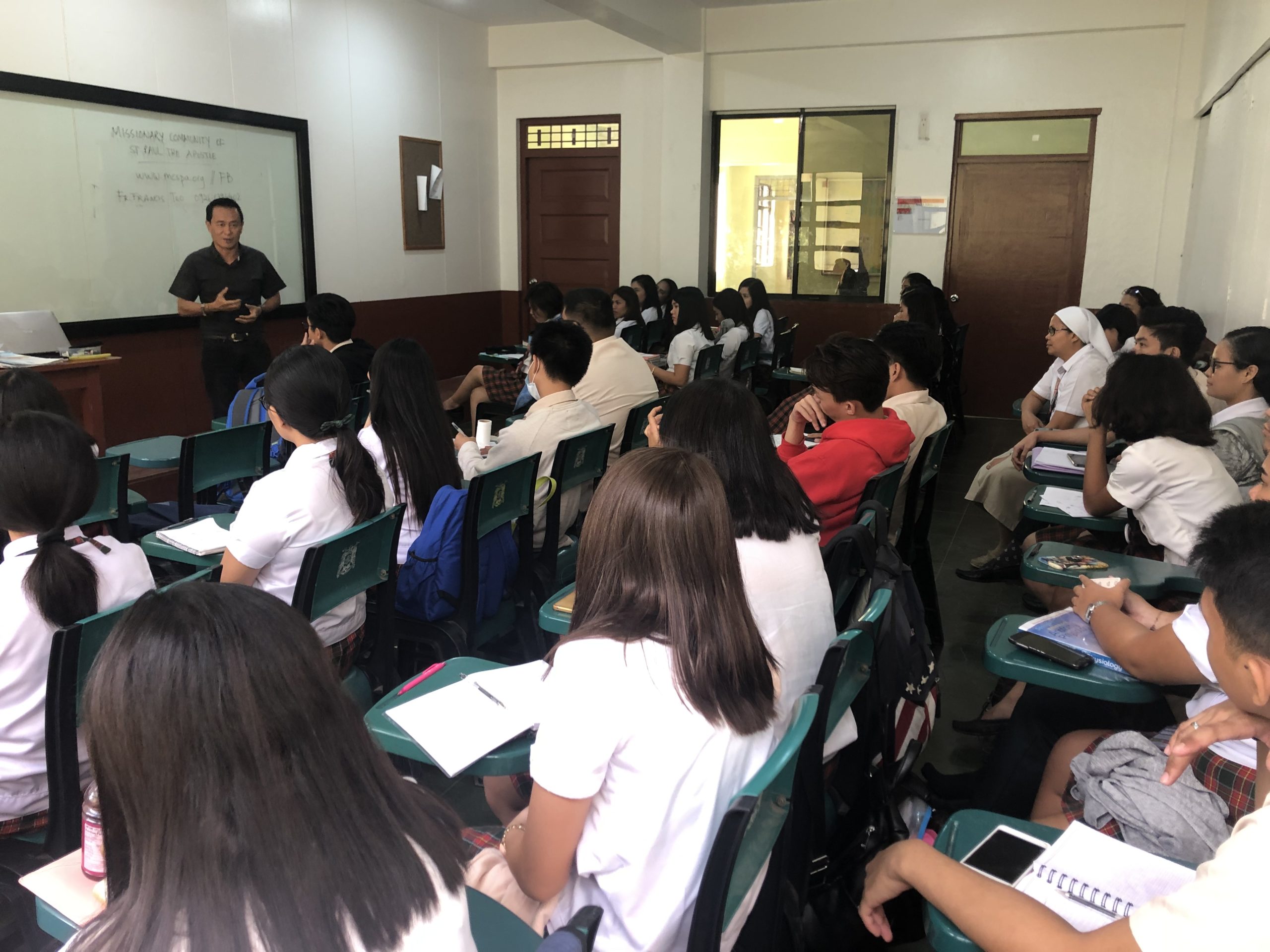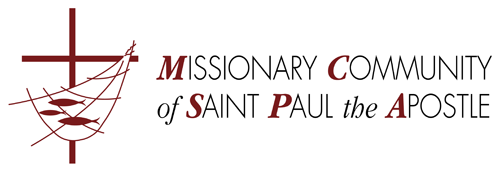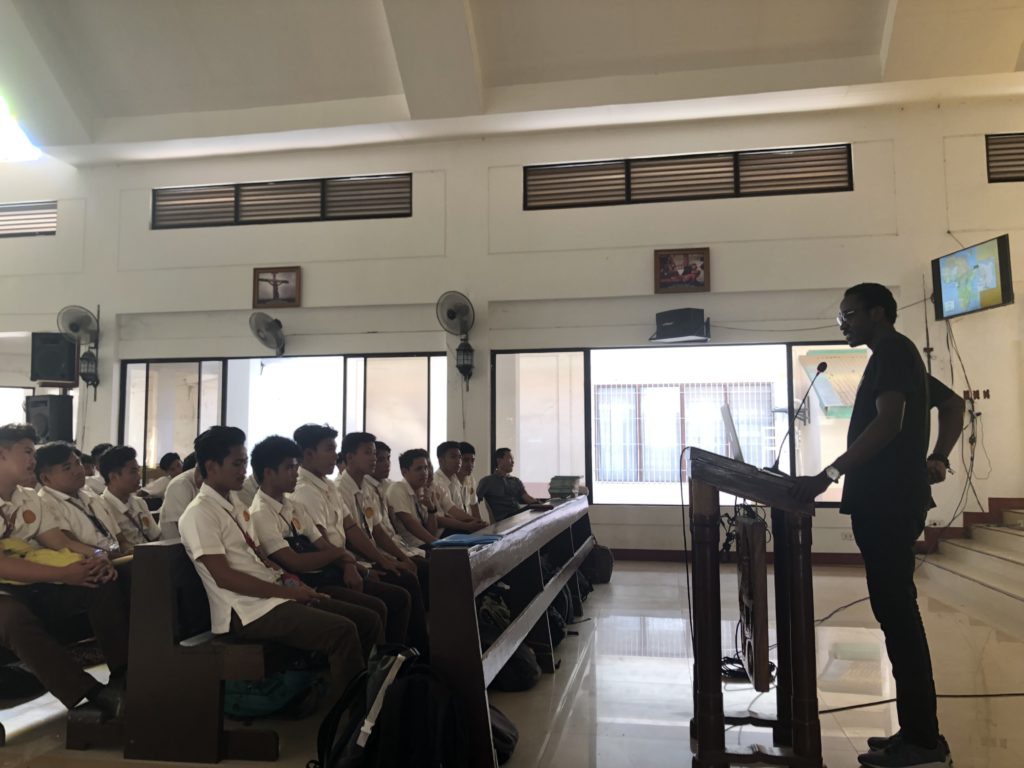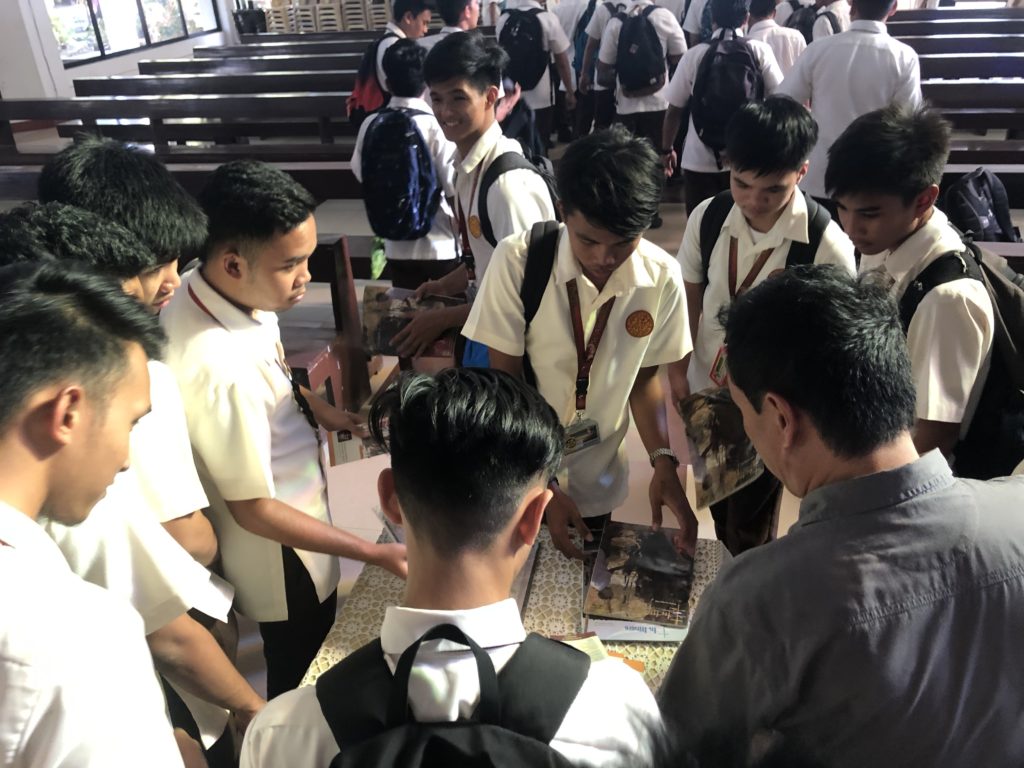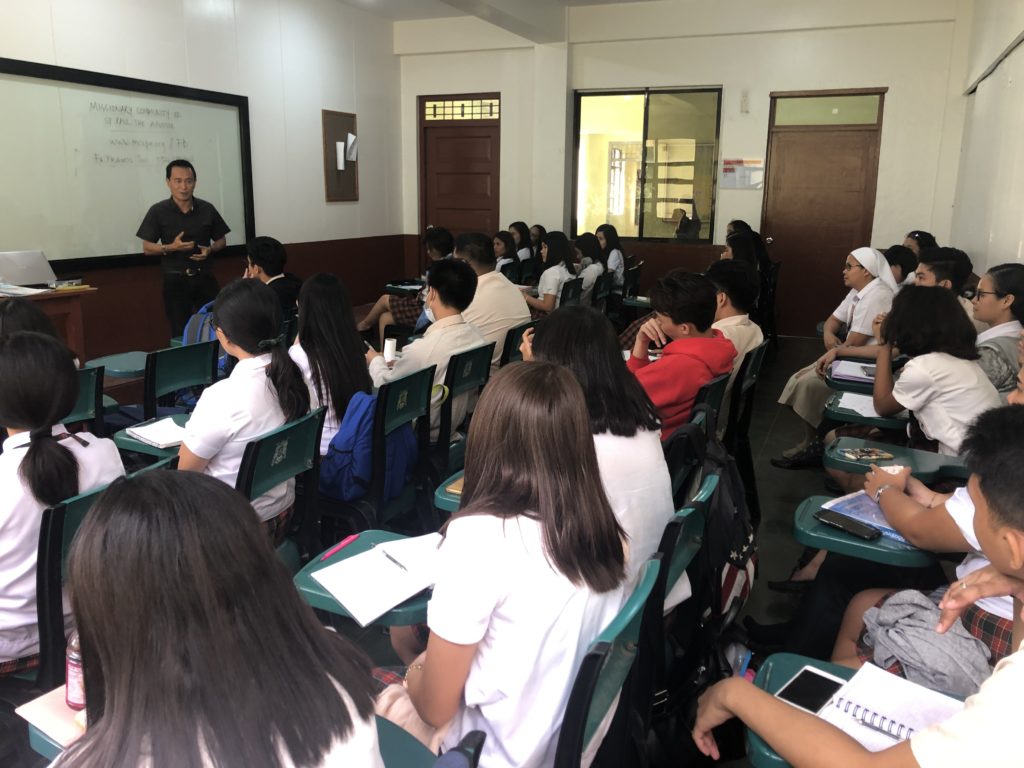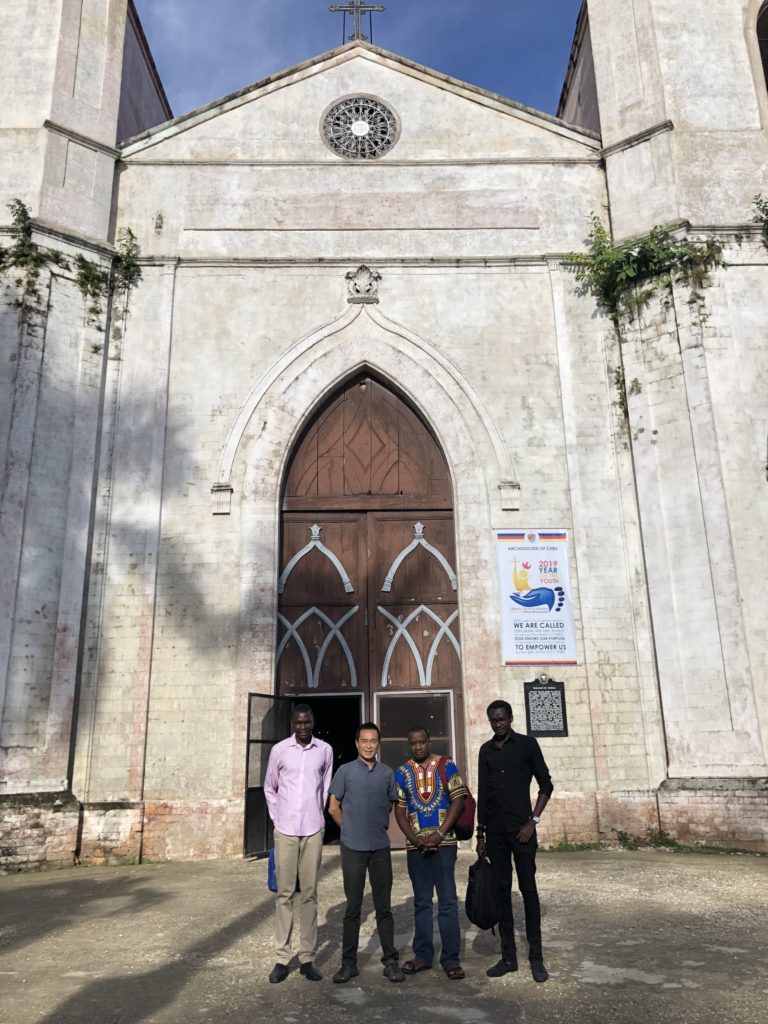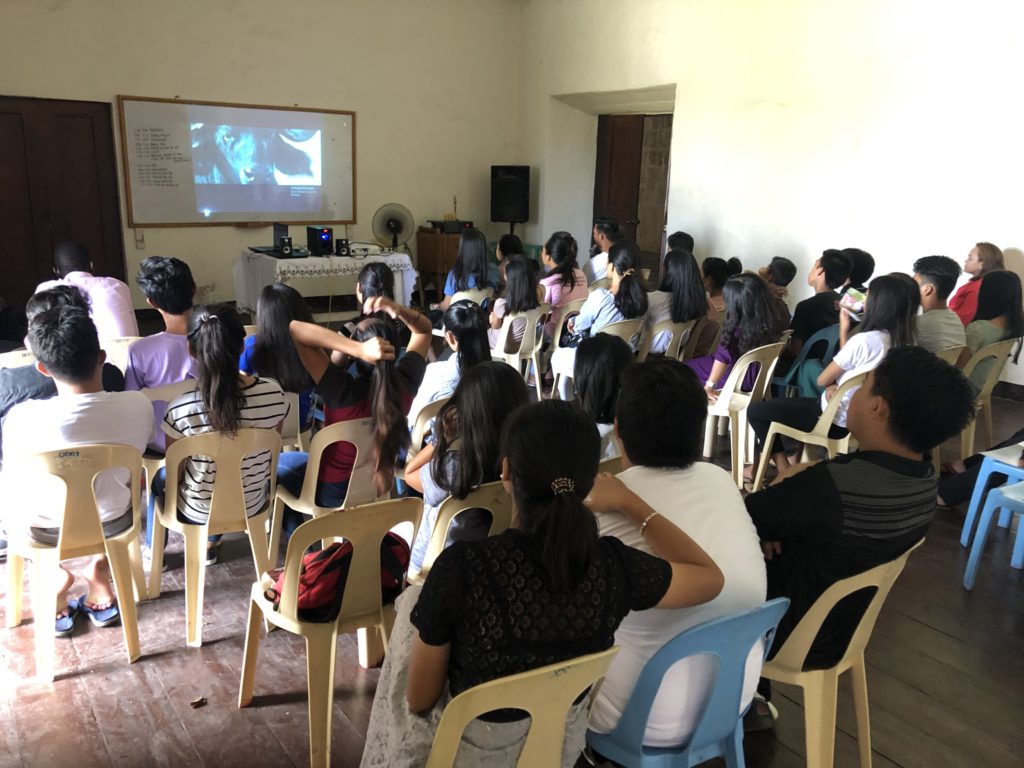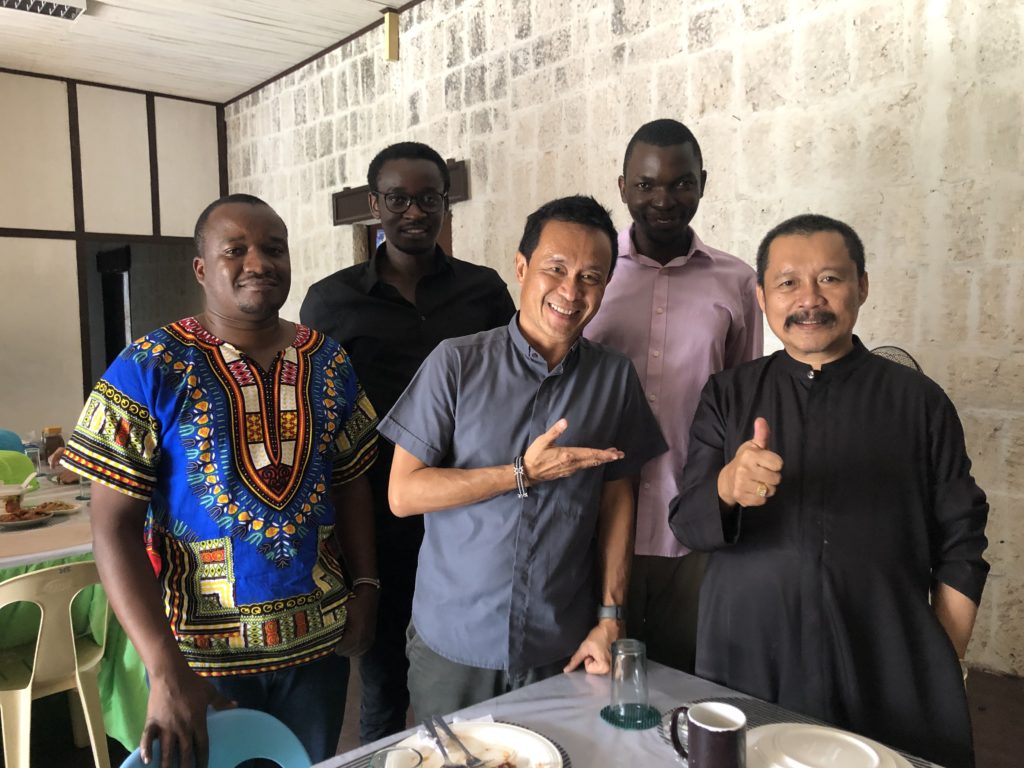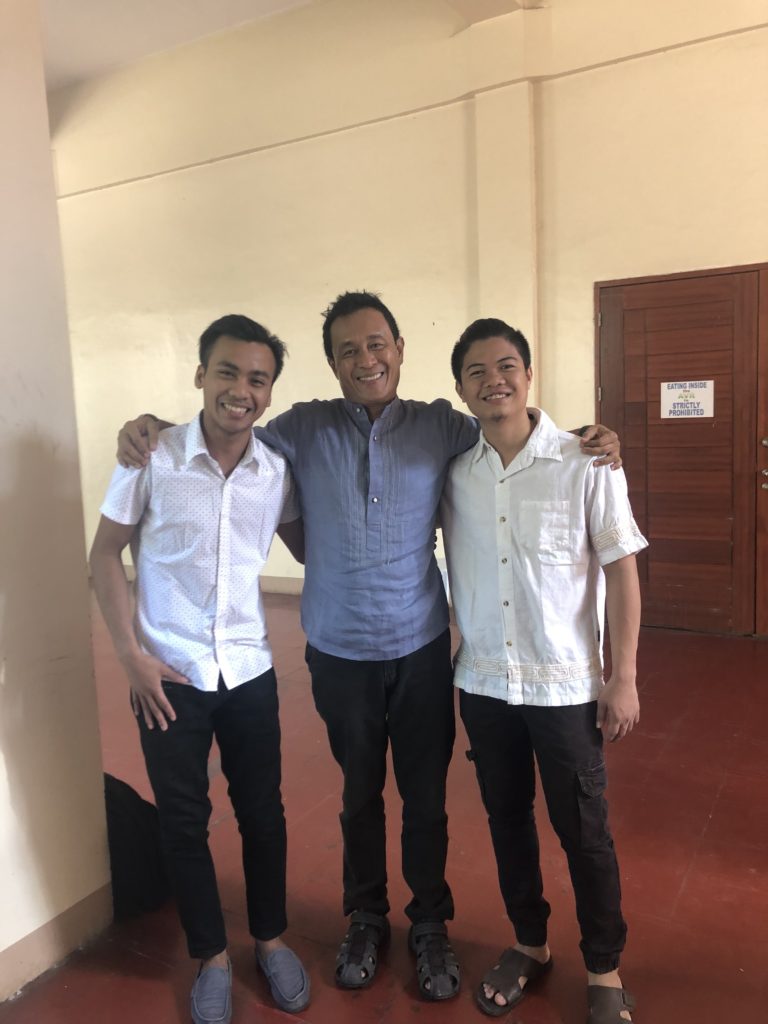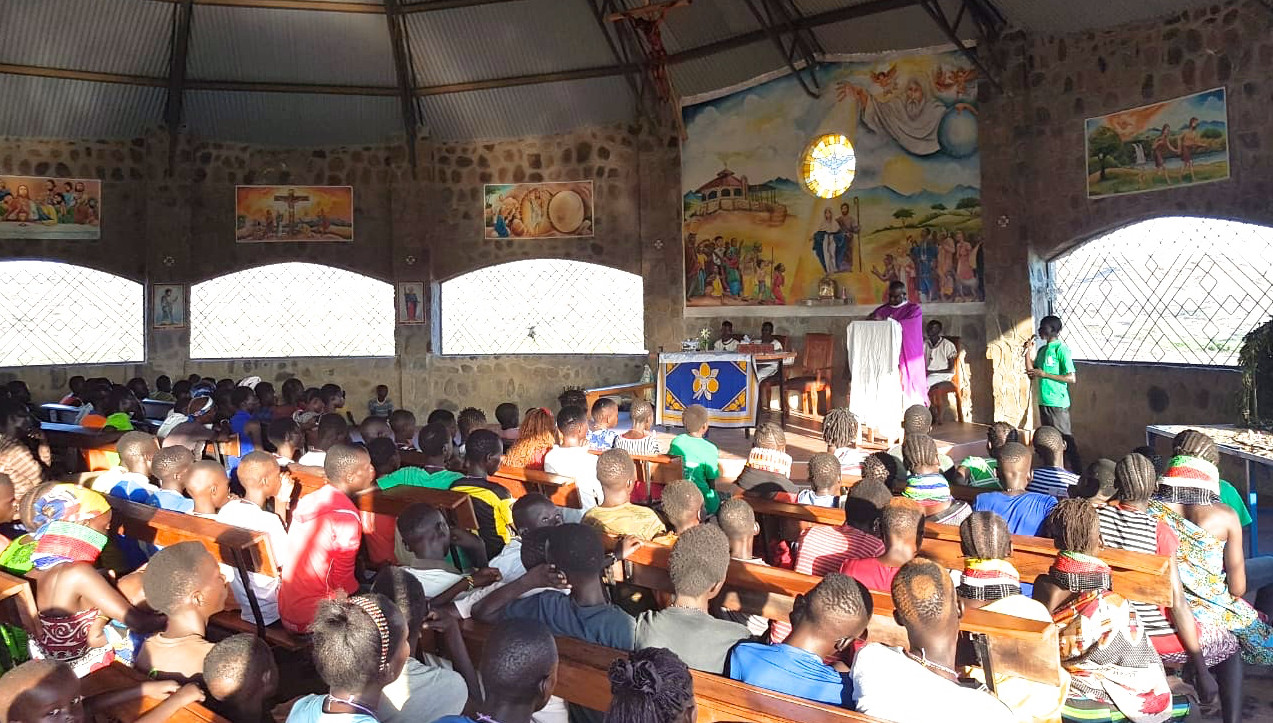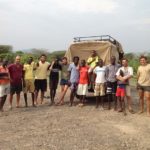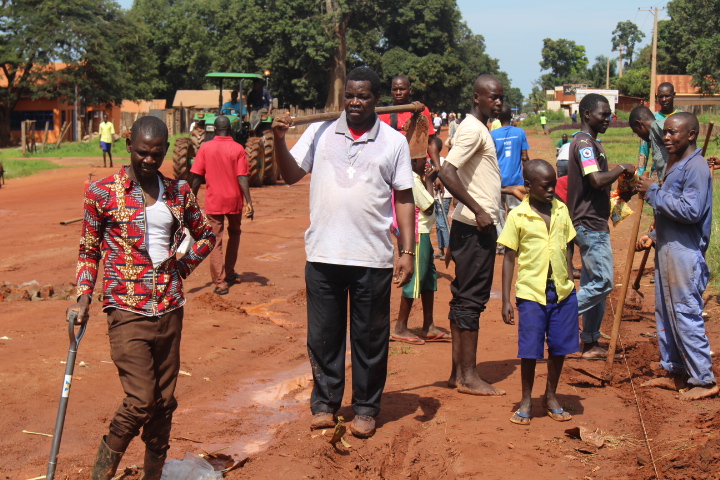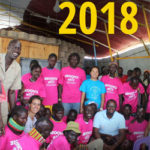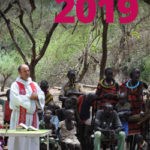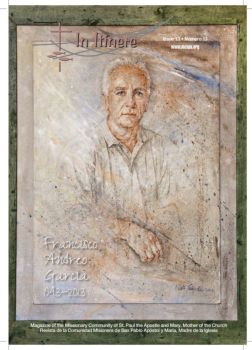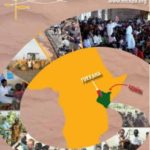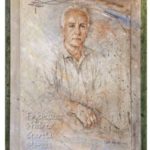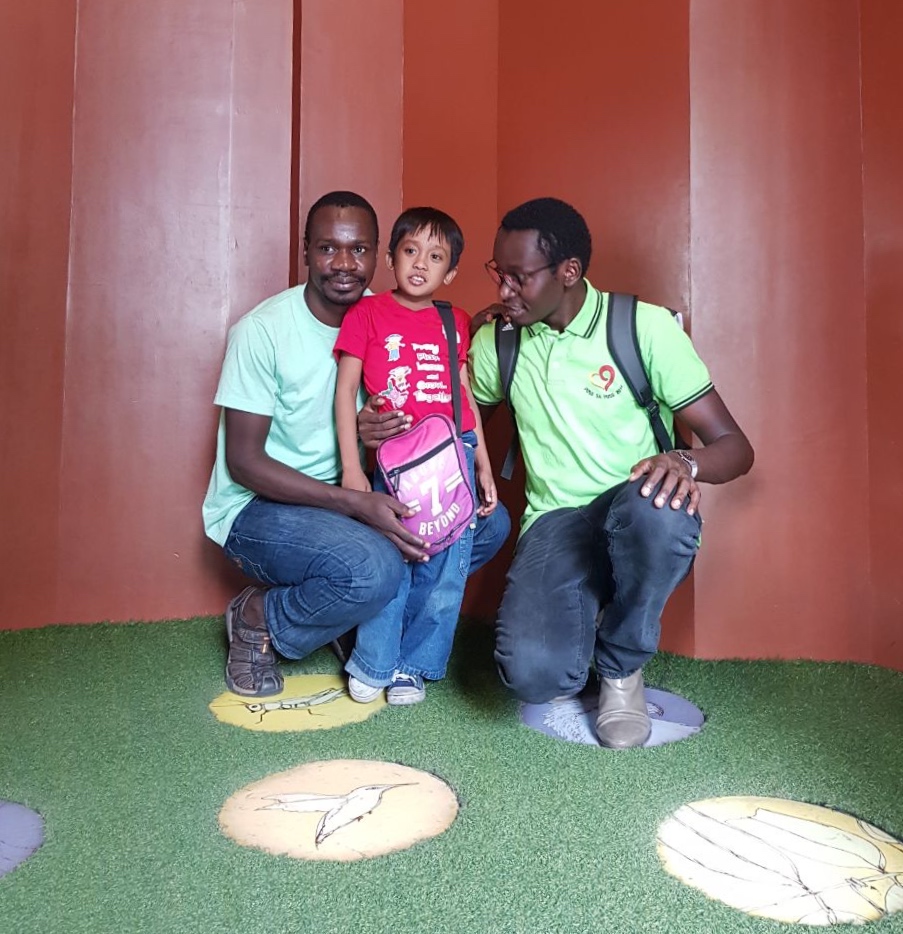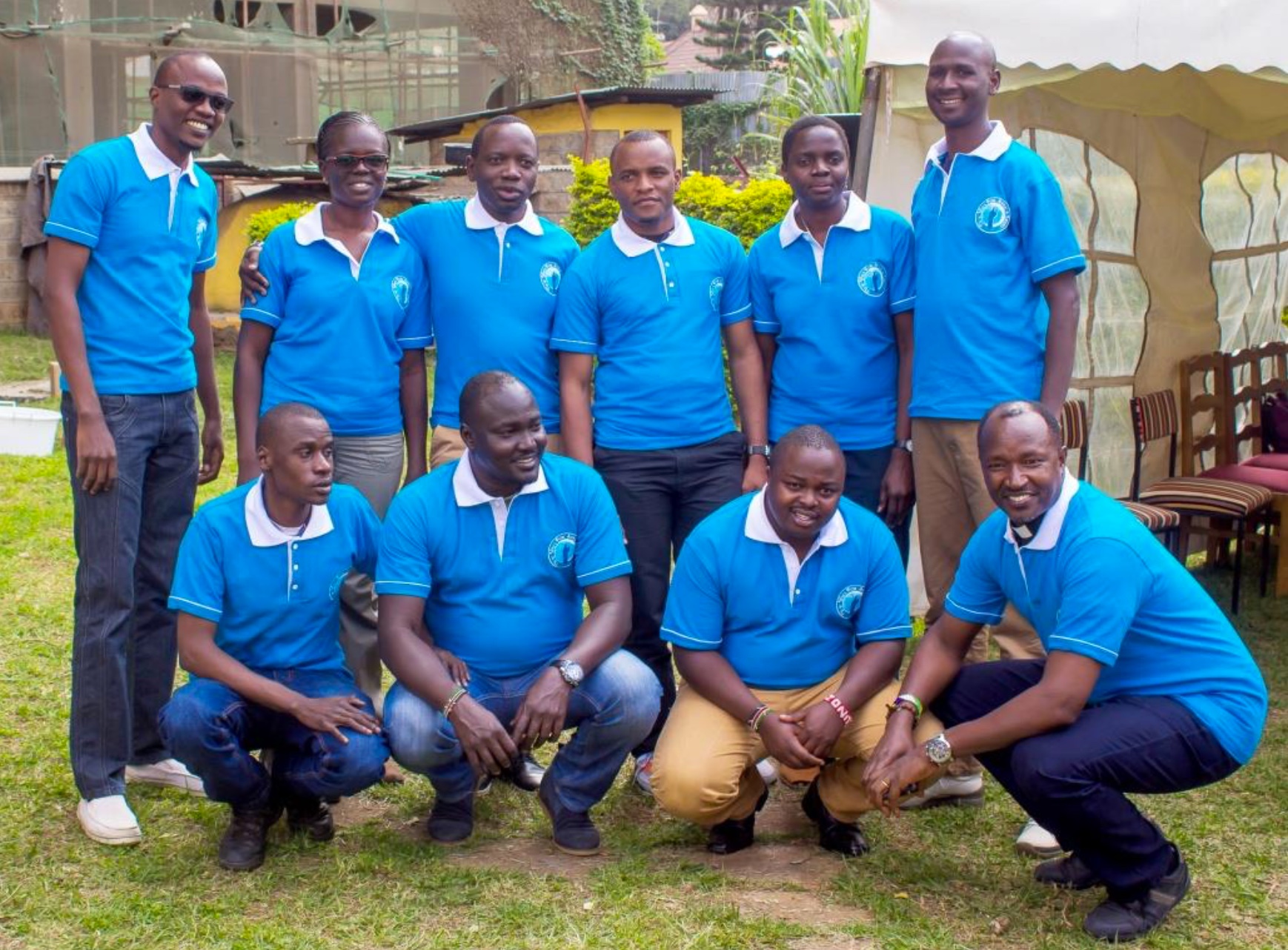Hello friends,
First of all I would like to wish you a very happy Christmas and a wonderful beginning of 2019. I am writing to you from the Mission of Naturomoe, located on a hill from which we have a spectacular view of three countries: Ethiopia, Kenya and South Sudan. At night the celestial vault, the occasional roars of lions and the slow step of the elephants remind us that we are in the heart of untamed Africa.
This year has been full of good things and also full of challenges! and thank God, the positive weighs more than the negative.
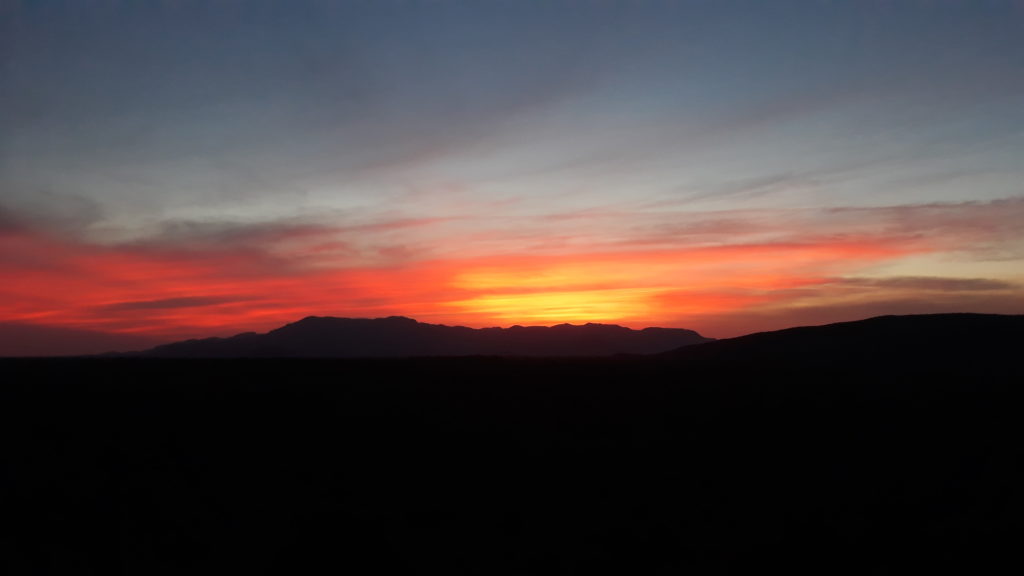
Sunset from Naturomoe Mission
Only a couple of weeks ago we completed the third annual veterinary campaign thanks to a friend veterinary from Spain. This year he was accompanied by another veterinarian and a nurse. So apart from fulfilling the goal of deworming all the small ruminants of Kakuta, more than 15,300 heads, we have also been able to take care of sick people.
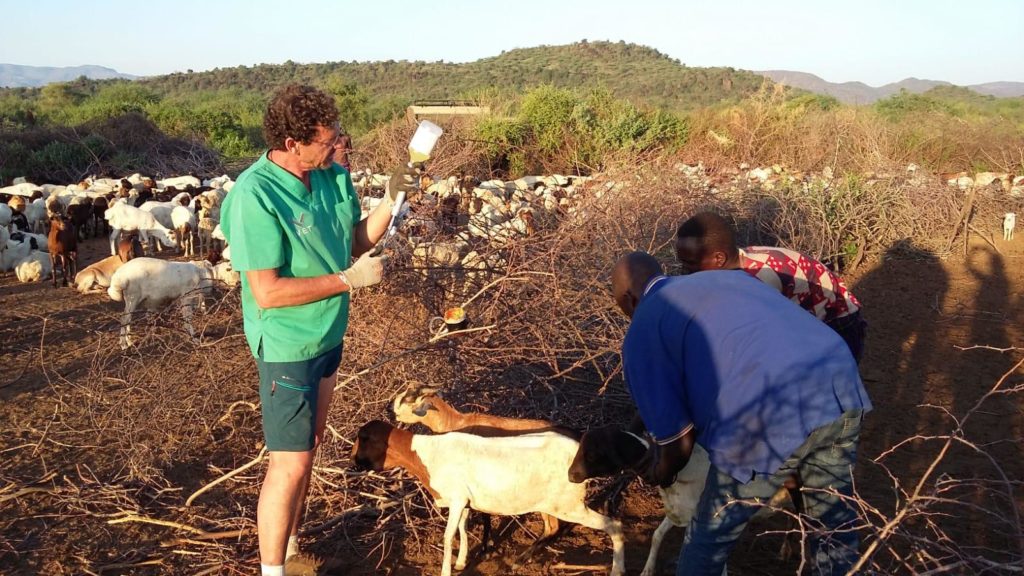
Deworming of 15300 small ruminants
In previous times we had only reached about 4000 or 4500. In addition, this year we tried to sensitize a greater number of people about the importance of hygiene and sanitation health in relation to health, especially due to the proximity between animals and human beings, thus being able to avoid many diseases.
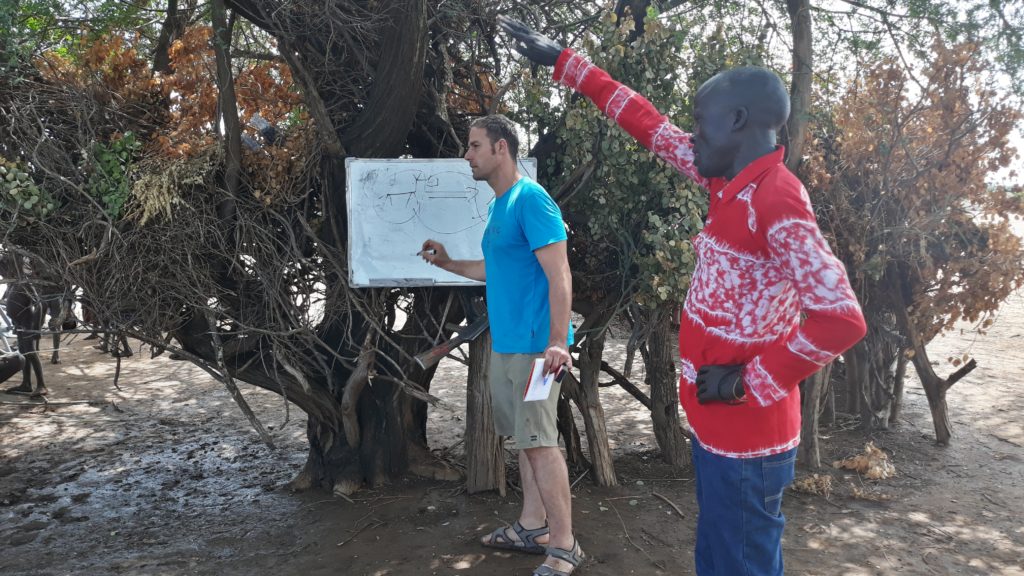
Talks about hygiene and sanitation
From February to April of this year we had with us two doctors from Chile who did a fabulous job treating the sick in the Kakuta area. From April to August, we have tried to conduct mobile clinics once a month, with nurses from the nearest governmental health center located in Kangaten (1 hour by car from our mission). The challenge has been the vehicle since we only had one and it was being repaired often. Thanks to a donation and to many other efforts we have purchased another second hand car, which will help us a lot to do mobile clinics and many other things for the people.
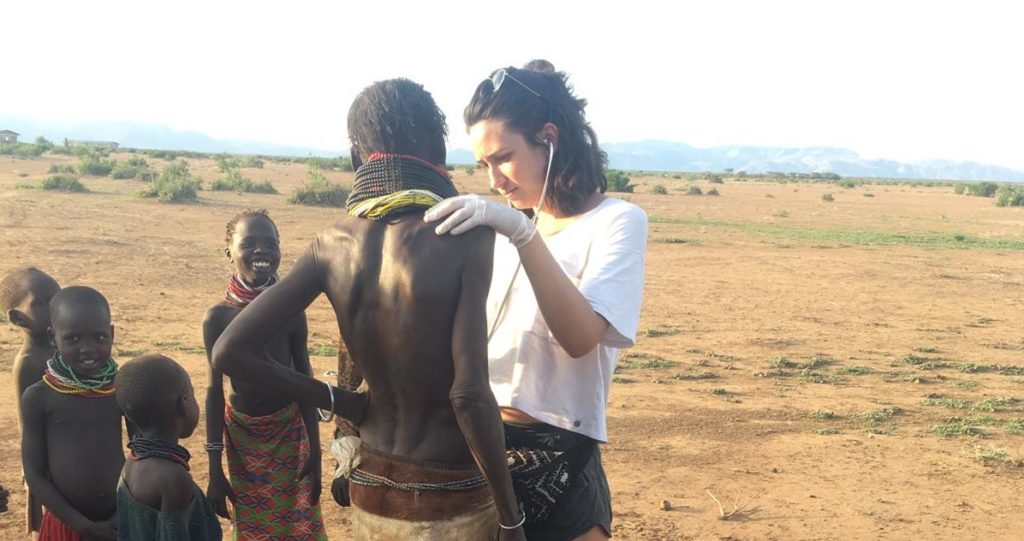
Mobile Clinics
At the end of the dry season, in March this year, it was very hot, windy and dusty, and then all of a sudden the rainy season was upon us and it was actually the best rainy season that we have experience in all the years we have been in Nyangatom, it rained until the end of May. The Kibish or Nakua River burst its banks and flooded the shores, providing the people with the chance to plant after the waters receded to its normal course. However good, the rainy season also brings some challenges, especially because of the many mosquitos that breed in the rainy season and they bring malaria, which is dangerous, as the people do not have nets. We had so many cases and did our best to treat them all. In addition, travelling by road became very difficult due to the mud and the strong flowing rivers. We had to swim across the river to bring some supplies from the other side and had to build an improvised raft for it. Can you imagine!!.
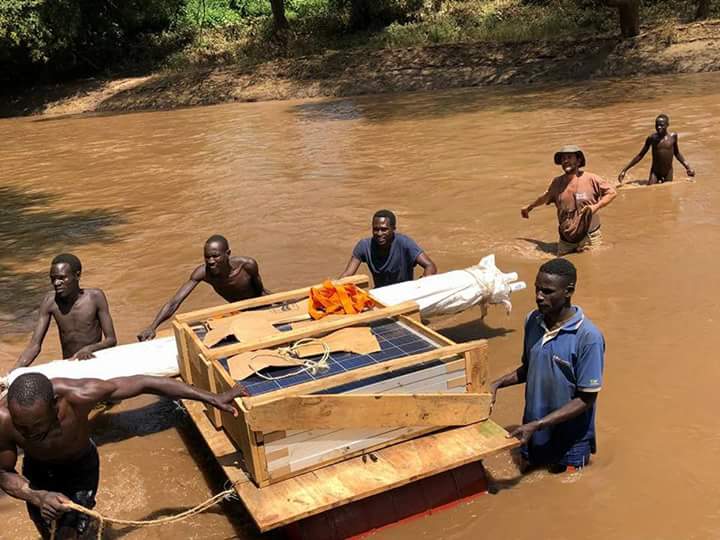
Crossing Nakua river with an improvised raft
We have now been living Naturomoe, our new home, since May – it is 10 km west of from our former camp. Our living conditions have vastly improved and gradually things will get even better making our life easier so that we can also serve better our Nyangatom people. We now have running water, a latrine and showers. Hurrah!! Recently we have also installed the first WC toilet! We also have upgraded our tents for a straw and bamboo hut!
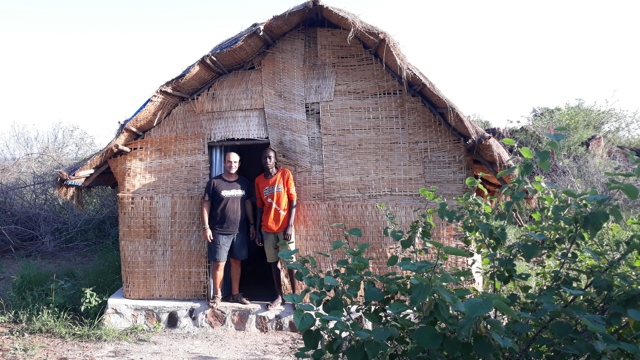
Bamboo and straw hut in the new mission
Very soon we will complete the first buildings of the mission with the new constructor, that is the staff houses and the workshops and store. We still have a long way to go but we will get there in the next 12 months.!
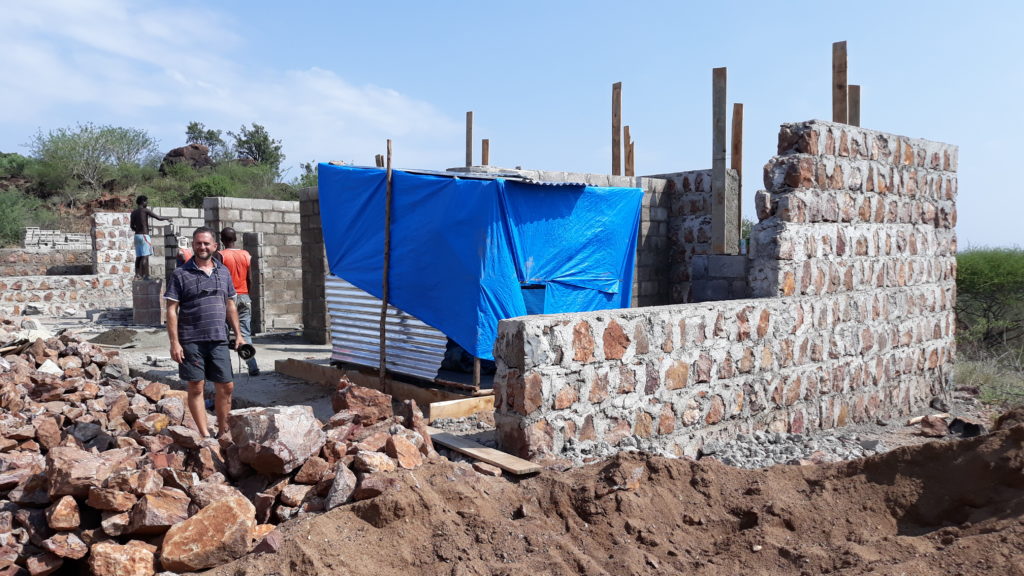
Constructions thriving…
We have had a very busy summer: In June 4 Mexican volunteers came to visit, they are part committed group from Monterrey who are trying to come every year to give a helping hand. Secondly in the month of July we had full house: 10 Spaniards, two Mexicans, 2 Ethiopians, plus 7 staff members. Among the Spaniards there were 4 Civil engineering students from Madrid and one from Ethiopia, and another graduated civil engineer from Madrid as well. They spent here with us a month and a half and each did a civil engineering project to help the community: 3 of them dams and 1 of them a rural road from Nyangatom to South Sudan.
In order to start this project the first thing is always to meet with the community and especially the elders. They are the ones who asked for this project to be implemented and therefore they are the best people to explain to us, and the engineers, what the needs are and the level of urgency. The elders gave us two scouts who took us to all the places where the Nyangatom know that the water gets stagnant during the rainy season and that could be good for the dams. Then we had to carry out a survey of the land and bush in those locations and evaluate them together with the engineers and the help of their professor back in Spain. It was a very good exercise and we have identified five good places: 4 for earth dams & pans, and one for a rock dam.
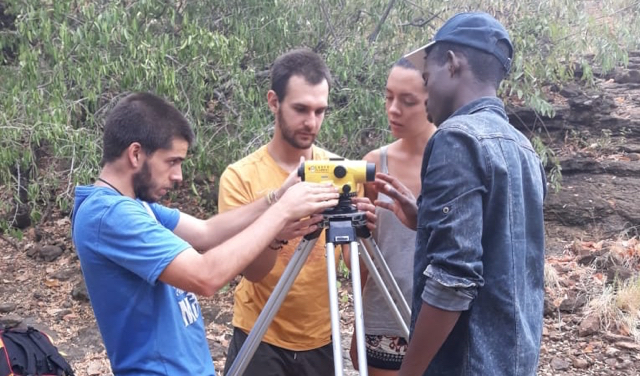
The engineers taking measurements of the terrain.
The real hard work came when we had to survey the possible road to South Sudan. This is mainly because there is no road, and therefore we had to cut through the bush, pass through deep dry rivers beds, and carry all the necessary equipment and supplies to survive in the wilderness. It was a great adventure! We cleared enough to build one third of the total distance of the road. The rest will be done when we have regained our strength.
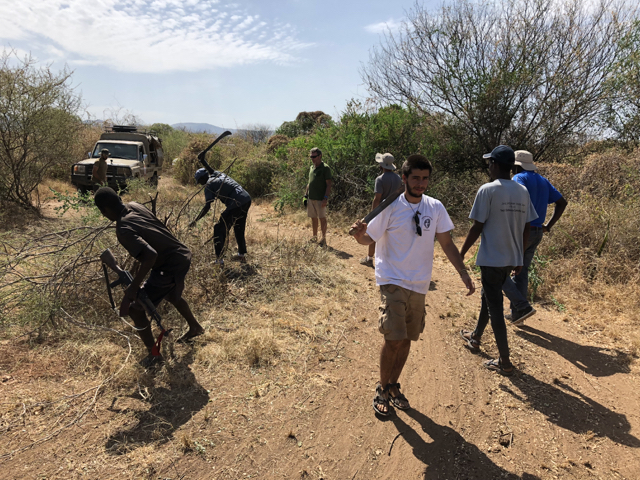
Opening paths through the bush.
These projects will also serve the students as their final project for their graduation. The young civil engineer will survey and gather all the information from the others students and compile it all into a single survey. We will then look for synergies with all the previous water infrastructure we have already build with your fantastic support. Our aim is to design a global solution to improve the water situation for the people and their animals in the next 5 years. We will create a full project proposal and start looking for help to carry it forward. This will be in addition to continuing with the drilling of more wells and the excavation of shallow wells by the Nakua river, and finally if all goes well we will start the first nursery school in Kakuta, and try to help children and young people to access education.
This coming year 2019, will mark 5 years of our presence in Nyangatom. Sometimes it feels like 50 because of the many things we have gone through. We have achieved a lot, and yet in many ways it seems that we are not moving forward, as for example in the issue of peace. Just this morning we buried a Turkana rustler in the vicinity of the mission, who, along with three other companions, had stolen 12 cows from the Nyangatom, the previous day. When they escaped with the cows, the Nyangatom chased them, killed one of them and recovered the cows. This is the harsh reality here, which makes us be more humble as we continue to pray for perseverance in doing good among these people, so that God willing, one day they will understand the value of peace. Thank you very much for being part of this mission, as the African proverb says “if you want to get there fast, walk alone, but if you want to go far, walk with others”.
Our deep and heartfelt thanks to you all for your continued support without which we could not make these small changes that improve the lives of many in Nyangatom, even if there is still a lot to do.
Many blessings!
Frs. David Escrich and Angel Valdivia López, MCSPA
